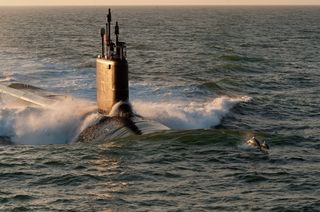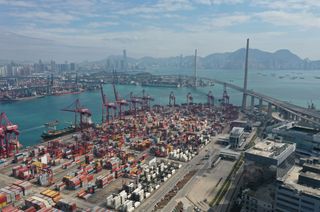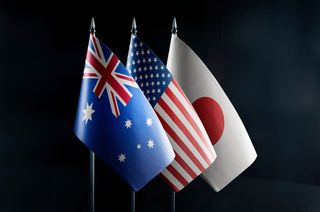The Australian
By James Brown
In the depths of a Washington DC winter, at a conference marking the alliance between the US and Australia, there is always the danger of descending into platitudes. But notwithstanding lingering tensions from Barack Obama’s G20 address in Brisbane and Australian responses to it, the relationship remains strong.
Which is why it was sobering to hear Foreign Minister Julie Bishop yesterday lay out a speech drawing attention to the fragility of the international political system on which Australia’s prosperity and independence rely, and reinforcing the importance of US global leadership and burden sharing by steady allies like Australia.
That message was somewhat at odds with the global survey presented in Obama’s State of the Union speech, which Bishop watched from the Speaker’s Gallery in the US House of Representatives. Sure, Obama’s address was aimed squarely at the Democratic base and focused on domestic political messaging. He rightly, and proudly, pointed to the economic resurgence in America — a country many critics wrote off as in terminal decline only a few years ago.
But on international issues that Australians are concerned about there was little new or compelling from the US President. The campaign against Islamic State forces remains ongoing but with little clarity about how the US plans to motivate the beleaguered Iraqi security forces, or when a campaign to recapture Mosul might be feasible. Obama cheerily pointed to the transfer of authority in Afghanistan without pausing to detail how America plans to ensure there will be no Taliban resurgence there.
He confidently pointed to the integrity of the US drone program that has operated above places like Yemen, at the very moment the capital of Yemen teeters on a descent into chaos. And his oblique references to the crises in Syria and Ukraine were far from reassuring.
While signalling that his had been a presidency free from rash military moves, Obama left much unsaid about how his smart global power will connect with the pressing security problems scattered across the globe in the next year.
But that is the political rhetoric and the theatre of the US congress. At the working level national security officials in Canberra and Washington remain closely engaged, particularly in the struggle to constrain returning foreign fighters from Iraq and Syria. In a wideranging conversation at the Alliance 21 Washington conference, Tony Abbott’s senior adviser for national security Andrew Shearer compared notes with the US National Security Council’s Asian affairs senior director Evan Medeiros. The past year had witnessed successive crises, Shearer noted. At each twist and turn US assistance had been vital to Australian national interests. Australia could not have put 150 unarmed police investigators into a Ukrainian war zone without US intelligence coverage and diplomatic support. Nor effectively searched for Malaysian Airlines flight 370 without the US Navy assistance.
For his part, Medeiros spoke of the frank and regular conversations he and other US security officials have with their Australian counterparts and the willingness of Australia to put skin in the game where it counts. Australia’s military contribution to the Iraq campaign is now second only to that of the US in terms of deployed troop numbers. But it is not only military components of the alliance that are collaborating to shore up international stability.
There is renewed optimism here in Washington about the likelihood of Obama securing authority from congress to fast-track negotiations on the Trans Pacific Partnership, a new trade deal that will bring together at least 12 countries in the Asia-Pacific region including Australia, Japan, and Indonesia.
This trade deal is largely unobjectionable to Australia, which has already concluded its own bilateral trade deals with all but three TPP participants. However, the still-secret TPP negotiations must bridge Australian objections over issues like intellectual property, and deeper Japanese concerns about market access. And should the TPP be passed by the US congress and Australian parliament, it will still need to work out how it will eventually seek to incorporate China — a necessity if it is to be a truly regional trade pact.
The course of trade negotiations and discussions on new economic infrastructure like the Asian Infrastructure Investment Bank is as critical to shaping the international security environment now as considerations about how best to manage territorial tensions and historical enmity in Asia.
The Foreign Minister sees a world of nation-states being slowly eaten away by sophisticated terrorist groups, drug cartels, and criminal actors flourishing in strife-torn areas where sovereignty and governance are weak.
The bleak picture she paints serves to remind Australians and Americans about the largely unseen work of national governments striving to shape a global security environment that permits stability and prosperity. And to make us all aware of how rare it is to find two nations with shared views and a shared willingness to use diplomatic institutions and military force to pursue common interests.
This article was originally published at The Australian




